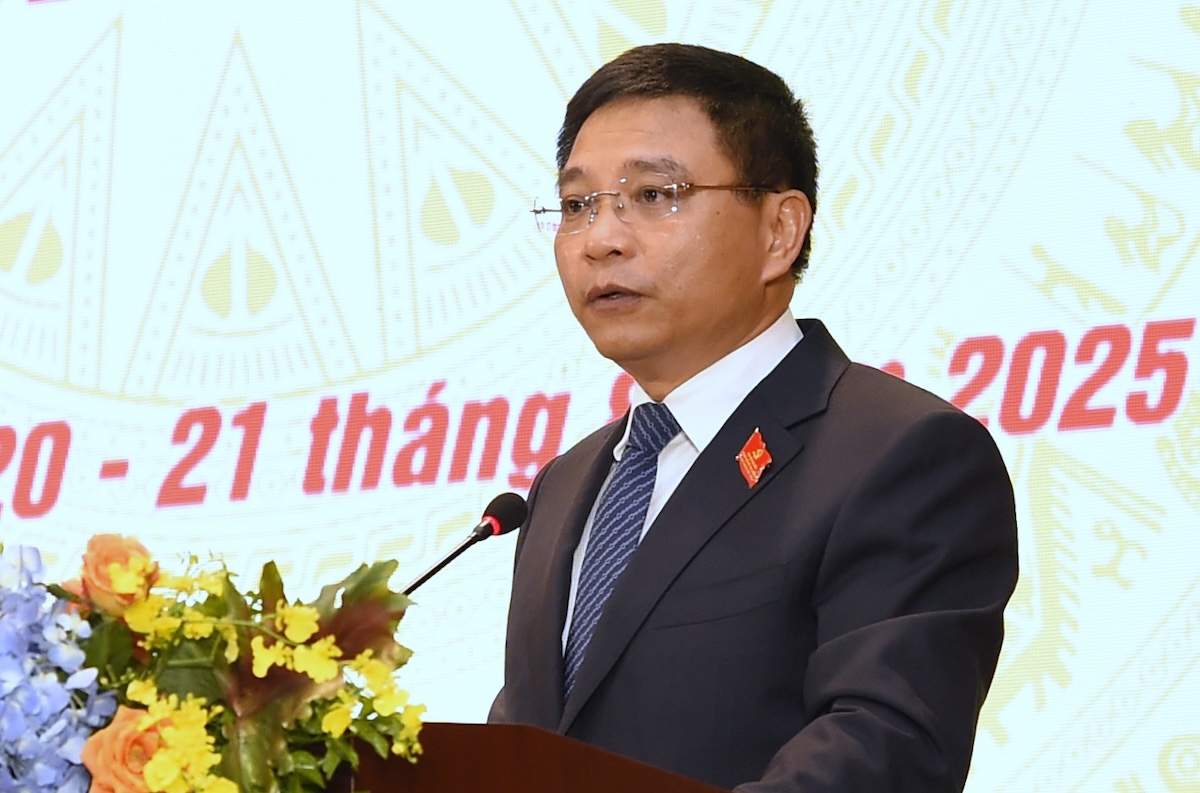This goal was outlined in the political report presented by the Ministry of Finance's Party Committee at its Congress for the 2025-2030 term on 21/8. Enterprise development and business environment reforms were key topics at the congress.
The Ministry of Finance aims for Vietnam to have at least 25 state-owned enterprises with equity or capitalization exceeding USD 1 billion, including 10 exceeding USD 5 billion. Additionally, the ministry aims for at least 30 state-owned enterprises to achieve net revenue exceeding USD 1 billion by 2030.
For the private sector, the ministry is striving for Vietnam to have two million operating businesses by 2030. The private sector is expected to grow by 10-12% annually, surpassing the GDP growth rate. By 2030, Vietnam aims to have at least 20 large enterprises participating in global value chains.
 |
Finance Minister Nguyen Van Thang speaks at the Congress on 21/8. Photo: MOF |
Finance Minister Nguyen Van Thang speaks at the Congress on 21/8. Photo: MOF
Currently, 76 Vietnamese enterprises are featured in the Fortune 500 Southeast Asia list, with many state-owned enterprises holding high rankings. For instance, Vietnam National Oil and Gas Group (PVN) reached the top 20 for the first time, ranking 11th in revenue and being Vietnam's sole representative in this group. Other state-owned enterprises in the top 100 include Petrolimex (26th), Agribank (45th), Vietnam Airlines (86th), and BIDV (43rd).
Last year, the total assets of 671 state-owned enterprises (473 wholly state-owned and 198 with over 50% state ownership) reached over 5.6 quadrillion VND, a 45% increase compared to 2023. These enterprises achieved a total revenue of nearly 3.3 quadrillion VND, a 24% increase, with pre-tax profits of nearly 227.5 trillion VND, an 8% increase. Their contributions to the state budget reached nearly 400 trillion VND, a 9% increase.
The government is developing a plan for state-owned economic development, which will serve as a foundation and driving force for effective mobilization and utilization of state resources. This will contribute to rapid development and achieving double-digit growth in the coming period.
In addition to enterprise development, the Ministry of Finance reported that from 2021-2025, total state budget revenue is estimated to reach 9.4 quadrillion VND, exceeding the set target. Meanwhile, the budget mobilization rate reached about 18.3% of GDP, ensuring the central budget's leading role. Public debt has been safely managed, decreasing from 62.7% of GDP in 2021 to about 36-37% of GDP in 2025.
The Ministry of Finance's Party Congress set a target of average annual GDP growth of 10% or more, with GDP per capita reaching USD 8,500 by 2030. The budget deficit for the next five years is expected to average around 5% of GDP. The average public debt-to-GDP ratio is projected to be over 45%. Average inflation for the 2026-2030 period is estimated at around 4-4.5% annually.
Other targets include registered foreign direct investment (FDI) of about USD 200-300 billion during 2026-2030, with realized capital of about USD 150-200 billion. FDI enterprises are expected to achieve a localization rate of over 40% by 2030.
Phuong Dung












